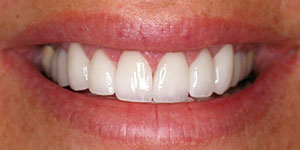
Veneers represent a common dental cosmetic treatment. Veneer’s benefits are not easy to dispute, but many patients want to learn more about their efficiency and durability, among others, before getting the treatment. Today, our experts in veneers in Fort Lauderdale FL are here to answer the most frequently asked questions about the procedure, so you can make a fully educated choice when you see your doctor about it.
What is Better – Veneers or Composite Bonding?
Our specialists in veneers in Fort Lauderdale FL say it depends on your dental problems. Here are the main facts you need to know:
- Veneers: as you probably know, doctors recommend veneers applications when you have damaged, crooked, stained, or severely chipped teeth;
- Composite bonding: this plastic filling material works best to enhance the look of your teeth if they suffer from mild damages and need minor repairs.
Are Porcelain Veneers a Reversible Form of Treatment?
The answer to this question is no. Since the application of veneers requires the “shaving” of the tooth (about 0.5 mm of tooth reduction), professionals in the field do not consider veneers to be a reversible treatment.
How Long Do Veneers Last?
The next logical question is how long we get to keep our veneers since the treatment is not reversible. According to our experts in veneers in Fort Lauderdale FL, veneers can last for at least ten years with little to no problems. Some patients agree that, with proper care and regular doctors’ visits, their veneers stood their ground so to speak far more than a decade.
How can Pros in Veneers in Fort Lauderdale FL Help with the Maintenance?
The material from which specialists build veneers is durable and robust. Under normal circumstances, your improved teeth can resist the usual wear and tear of healthy ones. However, some problems may appear when gum recession occurs, exposing the teeth. In this case, the patient may need new veneers to cover and protect the vulnerable root.
Regarding maintenance, our masters in veneers in Fort Lauderdale FL recommend you the following:
- Daily brushing – 2 times a day for two minutes each session;
- Daily flossing – especially after meals;
- Wearing a bite guard during the night increases your veneers’ lifetime;
- Using an electric toothbrush with a soft/medium head is also a good idea;
- Follow your yearly dental care routine – two visits to the dental office are mandatory during the year; you can even talk to your doctor about teeth cleaning treatment while you are there;
- Avoid using your veneers – especially the front ones – to crack hard shells, chew nuts, open bottles, and so on.
In case you feel that something doesn’t sit right with your veneers, see your doctor immediately.
Will Veneers Make Teeth more Vulnerable to Cavities?
After you have your veneers in place, you will be less likely to suffer from cavities, since the surfaces adhere to the teeth, protecting them. Our doctors in the veneers in Fort Lauderdale FL department say there is no higher incidence of tooth decay post-veneers application. However, you should take all the necessary precautions to avoid deterioration in the natural teeth that do not feature veneers. Moreover, with a healthy meal plan and thorough dental care, you should put your decay concerns aside in the long run.
If you have other questions about this treatment, feel free to contact our department of veneers in Fort Lauderdale FL, as we are open to clarifying all your inquiries and your doubts!

























